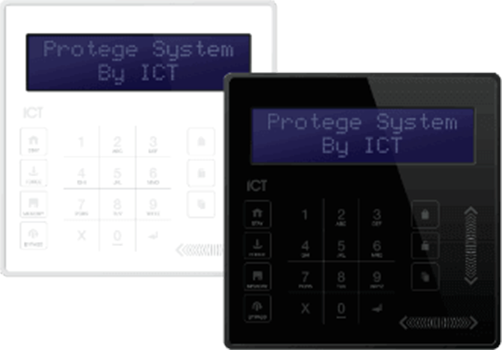Video MGMT System
 Access Control
Access Control
Voice & Data Wiring
 Burglar Alarm
Burglar Alarm
 Fire Alarm
Fire Alarm
Video MGMT System
Voice & Data Wiring
THOUGHT CENTER > Blog > News
February 24, 2022
The year was 2013, and the security services were supremely enthusiastic about the benefits of surveillance cameras and the ability to track wireless devices across the center of the city. However, a public backlash from privacy campaigners has resulted in the city being landed with a $150,000 bill for having the network decommissioned and physically removed.
There is always an element of controversy when new technology that effectively provides the police with added surveillance powers, that certain members of the public might call intrusive starts to be implemented.
This story, which has been developing for over five years has recently come to a head with Seattle Information Technology publicly admitting that they have set aside $150,000 to pay an outside contractor, Prime Electric as well as some city employees, to remove over 150 different wireless access points. These small white boxes and surveillance cameras are installed all around the city and provided security services with the ability to accurately track wireless devices across the city.
The mesh network was originally paid for with $3.6 million from the Department of Homeland Security. At its launch, the Seattle Police Department talked about how the new system would become a vital public safety tool both for port security and in cases of emergencies then as a communication system for first-responders. The counterargument to this came from the American Civil whose main complaint was that the system was merely an invasive tool which would be used for state surveillance while hiding behind a public-safety mask.
According to people predominantly opposed to the mesh network, the capabilities of this new system were immense. They claimed that the system could not only be used to target single individuals but also track and log every single wireless device that entered Seattle. Whether a person was just passing through the city, visiting a hotel for an illicit meetup with a partner, or innocently grabbing a coffee in the local coffee shop, all of this information was at least potentially being recorded and could then be used by the security services.
The City Council went into bunker mode, and only a few short months after this expensive system went live, a spokesperson for the SPD Sean Whitcomb made the following statement.
“The Wireless Mesh Network will be deactivated until the city council approves a draft (privacy) policy and until there’s an opportunity for vigorous debate.”
For reasons best known to the city council, five years later such a policy had still not appeared, and subsequently, the component parts of the system are now being systematically removed. The good news is that at least some of those parts are being used in other systems across the city, such as transportation traffic camera for instance, but it still does not take away from the fact, that this entire project has been a financial disaster.
Erb also commented that the plan initially had been to remove the equipment even earlier, but this had been thwarted due to work-schedule delays. The location of some of the boxes and cameras would be prime real estate for higher paying commercial cellular carriers always interested in upgrading their equipment and improving their signal coverage, Erb said:
“Seattle City Light is eager for us to remove old equipment from their poles.”
"This is one good, granular victory,” said Shankar Narayan, technology and liberty director of ACLU in Washington State.
“It’s an issue we’d advocated around for a very long time. We have a longstanding principle that suspicionless surveillance of general populations is not useful and chills people’s constitutionally protected rights.”
One of the key selling points of the system was its versatility, and yet quite ironically it was that very versatility that led to its demise, quickly turning a positive into a public relations disaster.
The issue comes down to not only the financial cost but also whether or not the general public is prepared to accept that kind of monitoring and intrusion into their everyday lives. Things that people would previously have done without any concerns or objections, such as attending a protest, they will be less likely to become involved in. The fact that they could be so closely monitored, and even potentially placed on a police watch list, changes the psyche and willingness of people to be involved.
When it comes to public surveillance, it seems that the city of Seattle is slow to learn any lessons. Only a few short months ago, the city was forced to abandon its drone network, which had once again been funded by Homeland Security, for much the same reasons - a public outcry over privacy and state intrusion.
The problem is that with such a potentially vast quantity of data being collected whether it be by drones or cameras, the value of that data becomes almost immeasurable. Could insurance companies get access to drivers daily driving trips, and subsequently increase their insurance, regardless of whether or not they had an accident?
The President of Seattle City Council Bruce Harrell said,
“This has been a learning experience for Seattle. The council needed to respect the public process, explain the technology, to the public in a transparent manner, listen to the public’s concerns and obtain council approval via ordinance before installation.”
As a consequence of these two separate fiasco’s city departments is now required to report any surveillance-enabled technologies, currently in use and then present them for a full review by the council.
At the time of writing a staggering 28 different technologies have so far been identified, with the general public demanding to know what exactly is the purpose of all of these systems.
Narayan himself says,
“That’s the point, all we have now are vague descriptions - it could be anything from a simple graphic representation of a spreadsheet, to a complex analytical tool that establishes relationships to show that somebody might be a gang member.”
As with anything involving the council, the wheels of investigation move at a slow pace, with the scrutiny not due to begin until March.
On a positive note, Narayan does admit that following the drone and mesh network issues, the ACLU has had productive conversations with SPD. He Said,
“They have a better understanding that if they want to roll out these technologies, they have to be ready to answer tough questions.”
City leaders it seems may well have learned their lesson, but unfortunately for the city purse, it cost them well over $4 million to get to this stage. Quite an expensive lesson to learn!
NOT COMPLETELY SURE?
860-748-4292